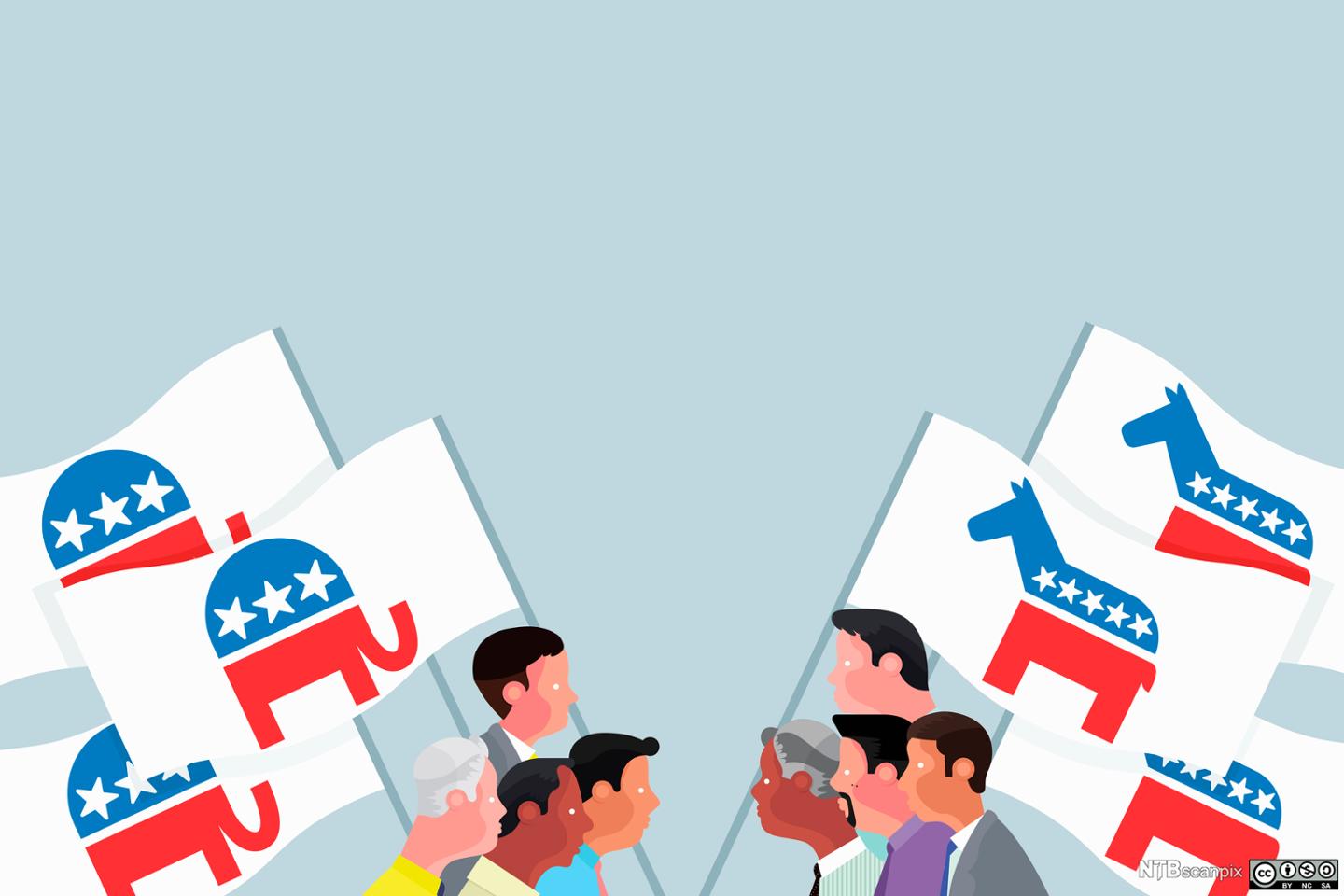
In contemporary society, social media and technology have become crucial in diversifying the political landscape of the United States; moulding public opinion, mobilising political movements and campaigns, whilst also influencing election outcomes by fostering democratic participation. However, in recent years, social media platforms have been implicit in worsening the increasing political polarisation in the USA. 78% of Americans argue that real-life substantive issues facing the country are neglected by the media, whilst 57% believe too much emphasis is afforded to partisan conflict.
Arguably, the most significant example of political polarisation being influenced by social media has been Trump’s call for Republicans to ‘storm’ the Capitol in January 2021, following Joe Biden’s electoral victory. This event saw the deaths of five Americans, and left around 140 police officers injured. Research indicates that the attack would not have been possible without the rise of echo chambers and filter bubbles online; when users are continuously exposed to targeted content that reinforces their existing beliefs, based on algorithms that monitor their personal online behaviour. Concerning the attack in Washington D.C., these echo chambers were primarily responsible for galvanising the far-right, dispersing extremist rhetoric, and mobilising Trump loyalists into action. Indeed, in the months following Biden’s win, sites such as Parler and Gab flooded with talk of violence and the taking of the government buildings, with hashtags like ‘stopthesteal’ and ‘stormthecapitol’ trending. Such a platform provided a digital space for extremist groups to organise and coordinate their activities during the attack. This also led to a surge in polarisation between parties online, with messages calling for attacks against specific Democratic congressmembers such as Nancy Pelosi being shared online. Americans today are more politically polarised than ever before, and surely this specific targeting of party members- endorsed by government officials themselves- only fuels the ‘us-verses-them’ mentality that exists between Republicans and Democrats?
Potentially the most pertinent example of social media impacting political polarisation in the US is ‘Twitter’, now known as ‘X’. The narrow character limit for tweets Twitter encourages concise and often cavalier posting. Thus, politicians, supporters and activists have begun to use it to disseminate their polarising narrative, attack opponents and rally supporters. Former president Donald Trump has become notorious for using this platform: his account was periodically banned, but his posts played a key part in the widespread claims of Democratic Party voter fraud, with 60% of his post election tweets seeking to undermine the legitimacy of Biden’s win. Researchers have analysed the way that political messages are spread on Twitter, and the impact of this on political polarisation. Work concering the 2016 U.S. Election found that voters typically interacted more with tweets including moral and emotive language. Republicans specifically responded to content regarding patriotism, religion and gun rights. In contrast, an exploration of tweets from Democrats revealed that they reacted more to words conveying the opposite; freedom, liberalism and a gun ban.
In the aftermath of the storming of the Capitol Building in January 2021, it has become clear that the impact of social media on political polarisation in the USA is widespread and undeniable. Digital platforms have completely diversified and transformed the landscape of American political discourse. They shape public opinion of Democrats and Republicans, influence election outcomes and deepen the already deep divide in American society.
Image: Republicans and Democrats, James Boast // CC BY-NC-SA



Average Rating